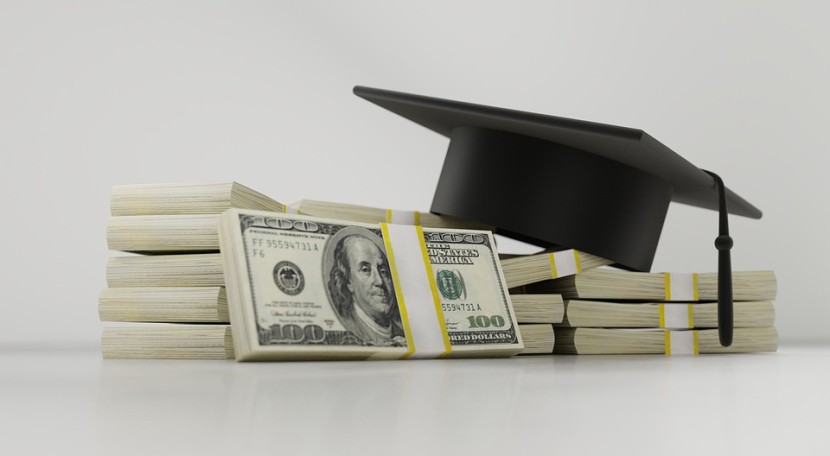
Starting October 1, 2021, it's likely that your student loan payments will be due once more. You might need to know about the student loan grace period.
A student loan grace period is the length of time before you are forced to begin repaying your debt. After you graduate or fall below half-time enrollment, you generally have a six-month grace period. When your student loan payment grace period expires, you'll have to start paying the total payments for your student loans.
Grace periods are built-in breaks before you have to start repaying your loan. It offers students time to look for work and start earning money to afford their monthly loan repayments.
Maximize student loan grace period
The clock starts ticking when you finish, fall below half time, or, otherwise, quit being a full-time student for student loans that allow grace periods. Here are a few suggestions for making the most of your grace period before payments begin, as per Bankrate via MSN:
- Make a loan repayment plan- If you are not prepared for your total monthly payments, the end of your grace period might be a surprise. Please remember that the costs include both your principal amount and any interest charges for that sum. Therefore, it is essential not to fall behind. Create a student loan payment plan before you start making payments.
- Measure debt against income- Multiply the monthly loan payment for students by 12 and deduct the figure from your annual income or the salary you want if you'd like to continue seeking a job. This results in a broad notion of the debt requirement of your student loan in comparison with your income. Set the budget to that effect.
- Start saving- From now, six to nine months may seem far; but don't be comfortable. It is also possible that you wish to set up a different check or savings account and eliminate it for any other cost.
- Use your job benefits- If you have found a job and are eligible for benefits like health insurance or savings, consider picking the choices that will have the most negligible impact on your take-home pay. For instance, instead of using the expensive gold plan, you can opt for a cheap "bronze" dental plan. If you have decreased your debt, you may always register for more potent benefits.
How to contact a student loan servicer?
Through the Federal Student Aid Information Center (FSAIC) at 1-800-433-3243, you can find who your student loan servicer is. According to Forbes, below are the student loan servicers for federal student loans that the US Department of Education owns:
- Navient: 1-800-722-1300
- Nelnet: 1-888-486-4722
- FedLoan Servicing (PHEAA): 1-800-699-2908
- Granite State - GSMR: 1-888-556-0022
- Great Lakes: 1-800-236-4300
- HESC/Edfinancial: 1-855-337-6884
- MOHELA: 1-888-866-4352
- OSLA Servicing: 1-866-264-9762
- ECSI: 1-866-313-3797
- Default Resolution Group/ Maximus Federal Services, Inc.: 1-800-621-3115
You can contact your loan provider to obtain the appropriate contact information for your student loan office if you have private student loans. By the Cares Act, the $2.2 trillion incentive package that Congress approved and the federal student loan payments have been halted temporarily from March 2020.
If there is no extension, the forbearance of temporary loans to students expires on September 30, 2021. After that, the US Education Department will send you a letter notifying you that payments for student loans must be made before the resumption of student loans.
However, you can contact your student loan agent to update your contact details and verify your student loan balance or learn about your monthly student loan payments if you have not made student loan payments.
Importance of student loan payment plan
When the 2021 class steps out into the world, they will face several significant and minor financial decisions, from renting an apartment to buying a new car to opening a bank account. You can choose to pay your student debts directly after graduation, like a 401(k) or a plan to repay student loans.
Your credit, budgeting, and retirement savings will all play a part in achieving specific financial milestones, such as home payments or paying out your student loan in its entirety. Knowing the 50/30/20 rule, student loan payment planning, building a credit score, and seeking financial advice are among the best ways to free yourself from student loan debt, as per CNBC.
Related Article: Student Loan Crisis: What Will Happen If Biden Doesn't Cancel Debt?








